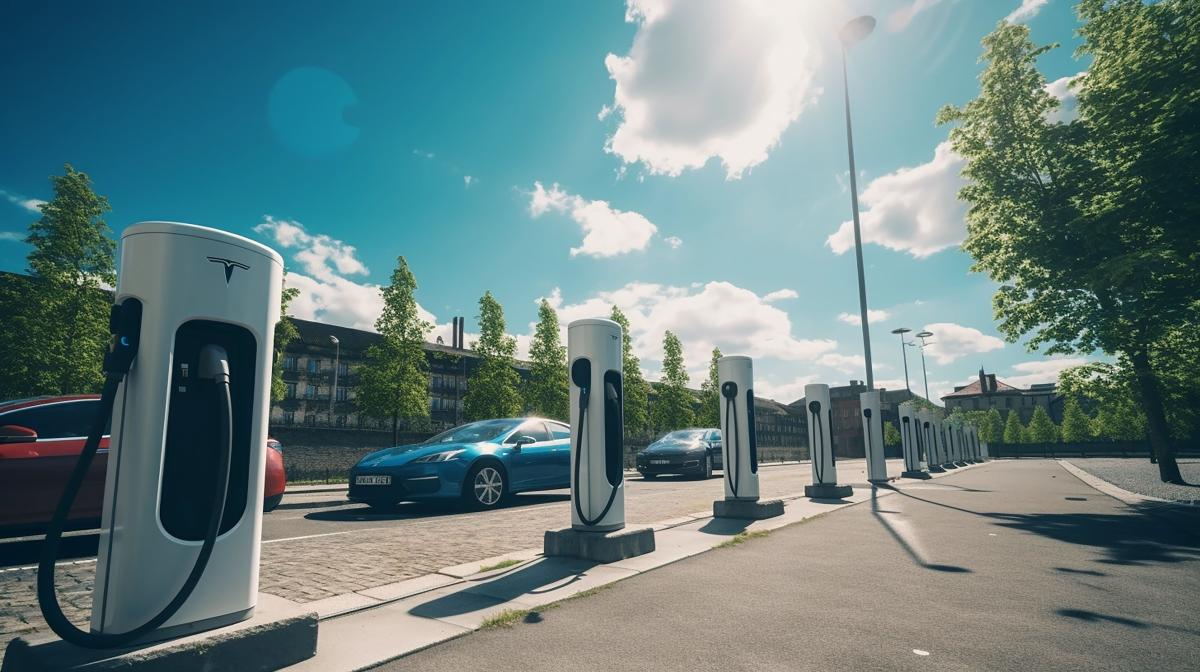France – a driving force in Europe for mobility and transport
A pillar of the French economy
The mobility and transport sector is a key pillar for France’s export market:
Aeronautics and space: The aeronautical sector, dominated by Airbus, is the jewel in the French export crown. In 2022, exports of aeronautical and space equipment rose to over 23.5 billion euros, placing France among the world’s leading players in this field. (Source: Conseil National de l’Industrie)
Automobile: France’s motor vehicle industry represents 149,000 companies with a total turnover of 155 billion euros. French automobile exports, led by groups such as Renault and Stellantis, occupied a prominent role in 2022, with the automotive sector generating 52.4 billion euros of exports, with a marked growth in electric vehicles. (source: INSEE)

Railway equipment: The railway sector encompasses 1,300 companies, 90% of whom are SMEs, with a total turnover of 3.8 billion euros, 26% of which is in the export market. Thanks to companies such as Alstom, France excels in the export of rail transport solutions. (Source: Direction Générale des Entreprises)
Infrastructure and engineering: French companies specialising in the design of transport infrastructures, such as VINCI and Bouygues, are at the heart of major international projects in the metro system, motorway and airport sectors.

Centres of excellence
The mobility and transport sector in France is centred around an ecosystem of top-quality training institutions and research centres, the aim of which is to meet the challenges involved in ecological transition, technological innovation, and the improvement of infrastructures.
The best known include the SystemX Institute of Research and Technology in Saclay, near Paris, which specialises in solutions for connected mobility and autonomous vehicles, and ONERA (the French Aerospace lab), located around 20km from the French capital. France’s expertise is also based around the excellence of its training programmes, thanks to renowned engineering schools such as Polytechnique, Mines ParisTech and the École des Ponts ParisTech, all of whom train future talents capable of designing the mobility solutions of tomorrow.
These training programmes and research centres often have close ties with competitiveness clusters, such as NextMove (based in Normandy and Paris Ile-de-France), dedicated to the mobility and automobile sector, and Aerospace Valley, based in Toulouse.
An ecosystem committed to green solutions
French innovation in terms of transport is geared towards solutions that are fully respectful of the environment. French companies such as Airbus (which, by 2035, will have developed zero-emissions hydrogen aircraft) are investing massively in low-carbon technologies. In the rail transport sector, Alstom has launched the Coradia iLint, Europe’s first hydrogen-powered train, which offers an alternative to diesel engines.
In parallel, the automobile industry, led by Renault and Stellantis, is accelerating the production of electric and hybrid vehicles, supported by ambitious government policies such as the creation of battery gigafactories. Lastly, ecological infrastructure projects, including low-emission public transport, bears witness to France’s commitment to innovative mobility solutions that help meet global climate challenges.
Fully committed regions and cities
The Paris Ile-de-France region is home to the headquarters of industrial giants such as Alstom, Renault and Airbus Group (the latter’s administrative HQ). Major transport initiatives such as the Grand Paris Express, the biggest public transit project in Europe, illustrate its central role. Every year, Paris also hosts international shows such as the Paris Motor Show, the Paris Air Show (SIAE) at Le Bourget, and the Autonomy Mobility World Expo, dedicated to new urban mobility solutions, which brings together the world’s leading players in smart mobility, and shared, electric and autonomous transport.
Outside of Paris, several French regions stand out for their expertise in terms of mobility and transport, which combines innovation, industrial prowess and sustainable development.
Toulouse, widely recognised as Europe’s aeronautics capital, is home to Airbus, the world’s largest aircraft manufacturer, and an extensive ecosystem of companies specialising in air and space transport. The “ville rose”, as it is known, also boasts a concentration of research and innovation centres such as ISAE-SUPAERO and ONERA. Every year, the Mobility Solutions Show (M2S), bringing together key players in mobility and transport solutions for the land, maritime and air transport sectors, is also held in the city.
Lyon is a centre of excellence for sustainable mobility. Hosting international shows such as Pollutec and BePOSITIVE, the latter a globally recognised event for the energy transition sectors with a particular focus on innovation in clean transport solutions and sustainable infrastructures. The city also provides the backdrop for CARA, a competitiveness cluster dedicated to new developments and innovation in the mobility sector. It brings together companies, research institutes and industrial partners in order to promote sustainable technologies and to improve urban and regional transport systems.
Grenoble is a centre of innovation for research into green transport and technologies. The CEA (French Alternative Energies and Atomic Energy Commission) and the Grenoble INP graduate school are both working on projects for electric vehicles, batteries and intelligent transport systems. The city also plays a key role in new urban mobility and smart city solutions.
Rennes occupies an important place in France’s mobility and transport ecosystem thanks to its dynamic approach in terms of innovation and research. Initiatives such as ID4 Mobility encourage collaboration between companies, start-ups and academic institutions in order to develop sustainable and intelligent mobility solutions.
Valenciennes is home to the i-TRANS competitiveness cluster for carbon-free and connected mobility solutions. The cluster brings together SMEs and laboratories across the spectrum working on ambitious R&D projects in the railway, automobile, freight and mobility sectors.
Nancy and Mulhouse actively contribute to the mobility and transport ecosystem in France as a result of their innovative initiatives. The Vehicles of the Future cluster brings together companies, scientists and start-ups to develop advanced technologies such as electric and autonomous vehicles.



